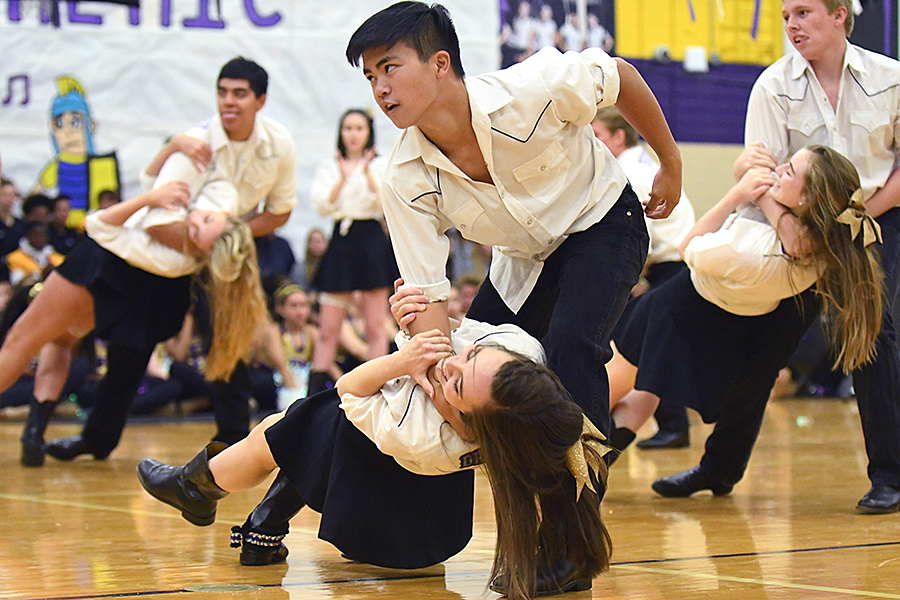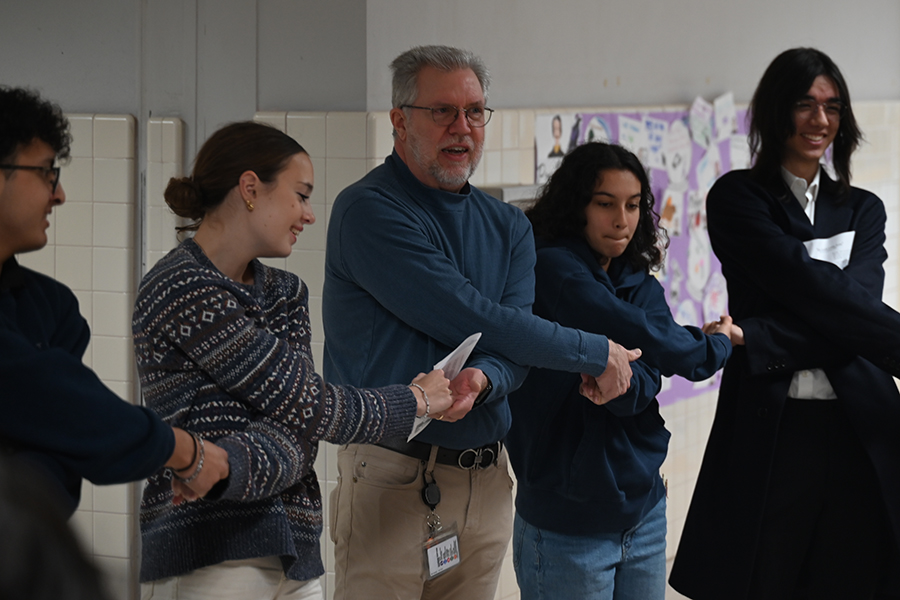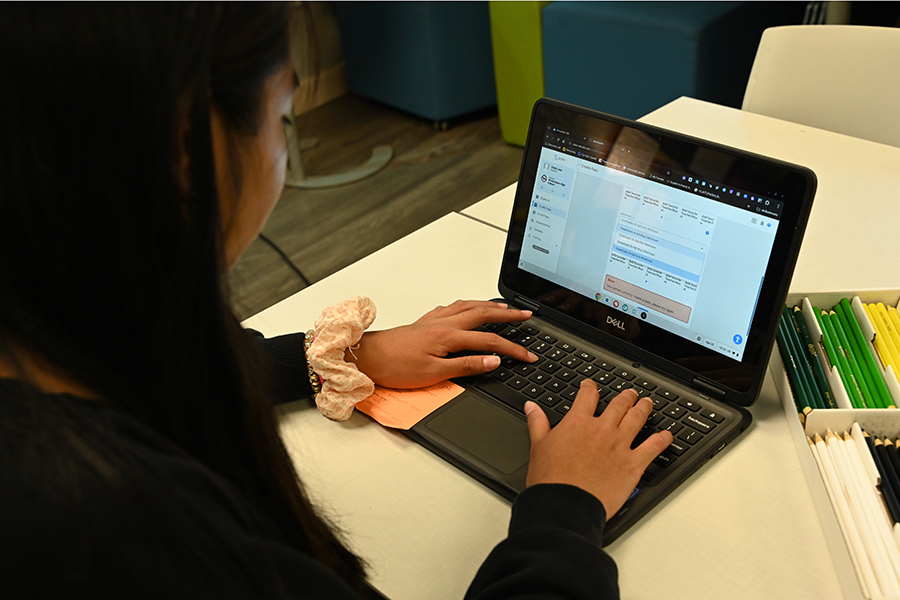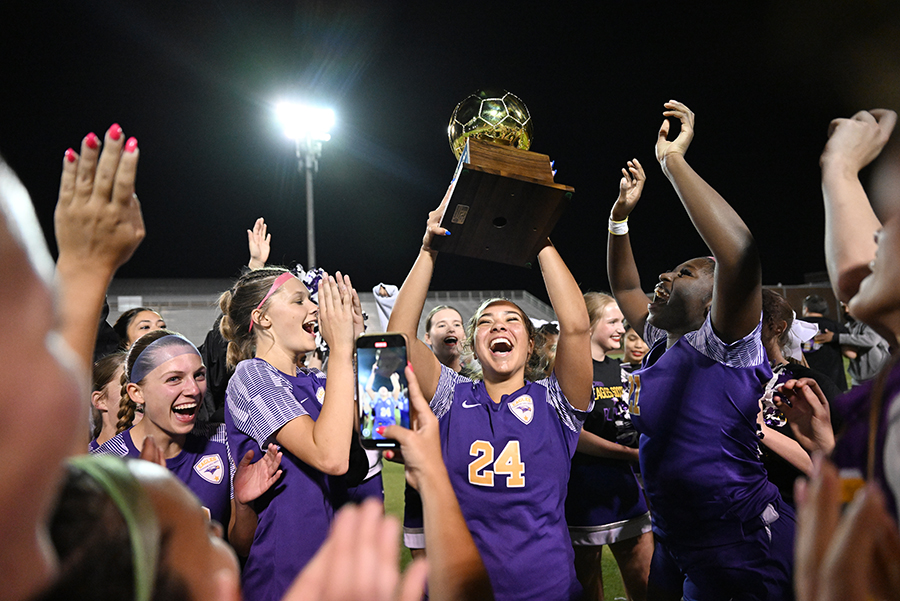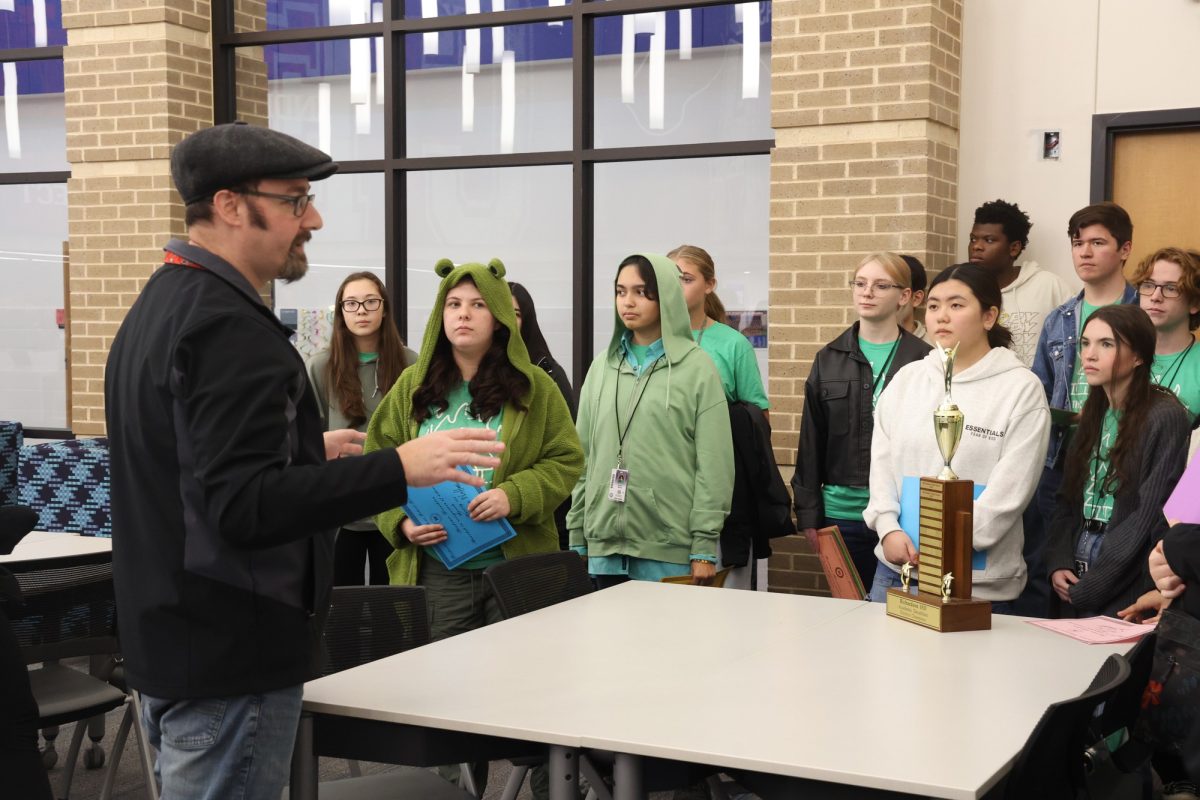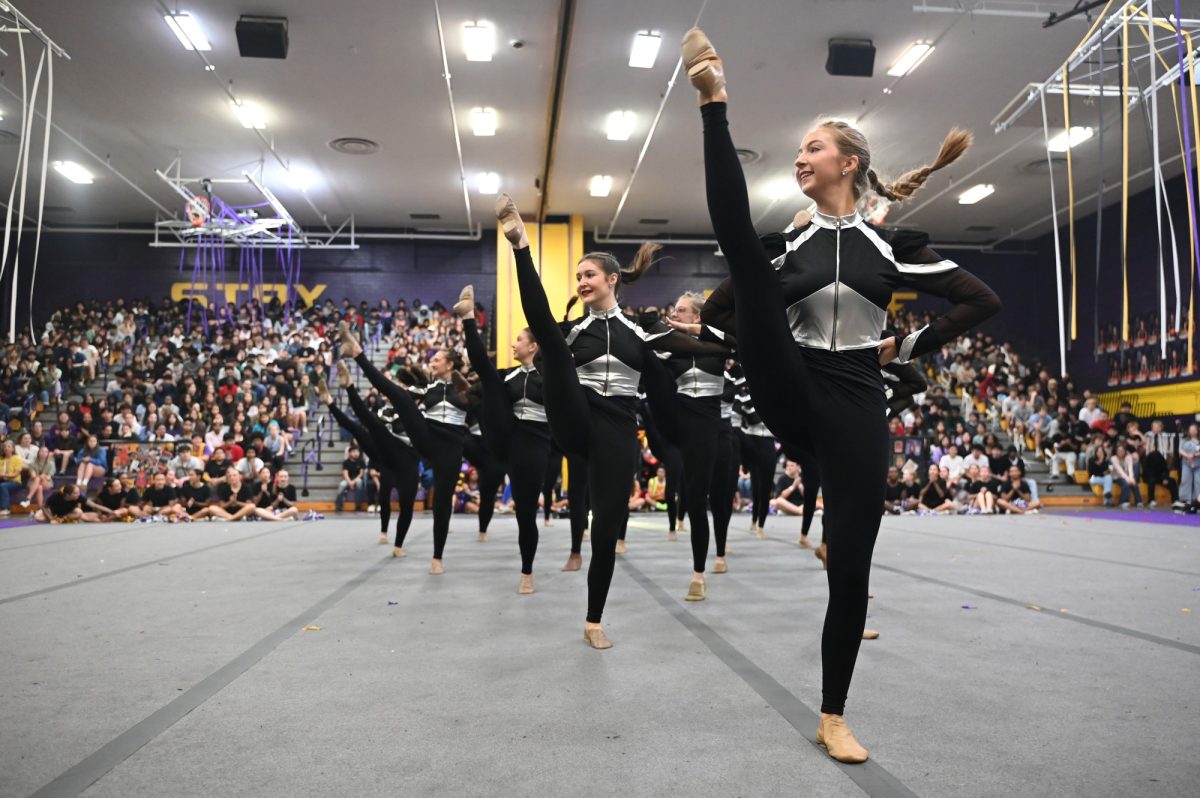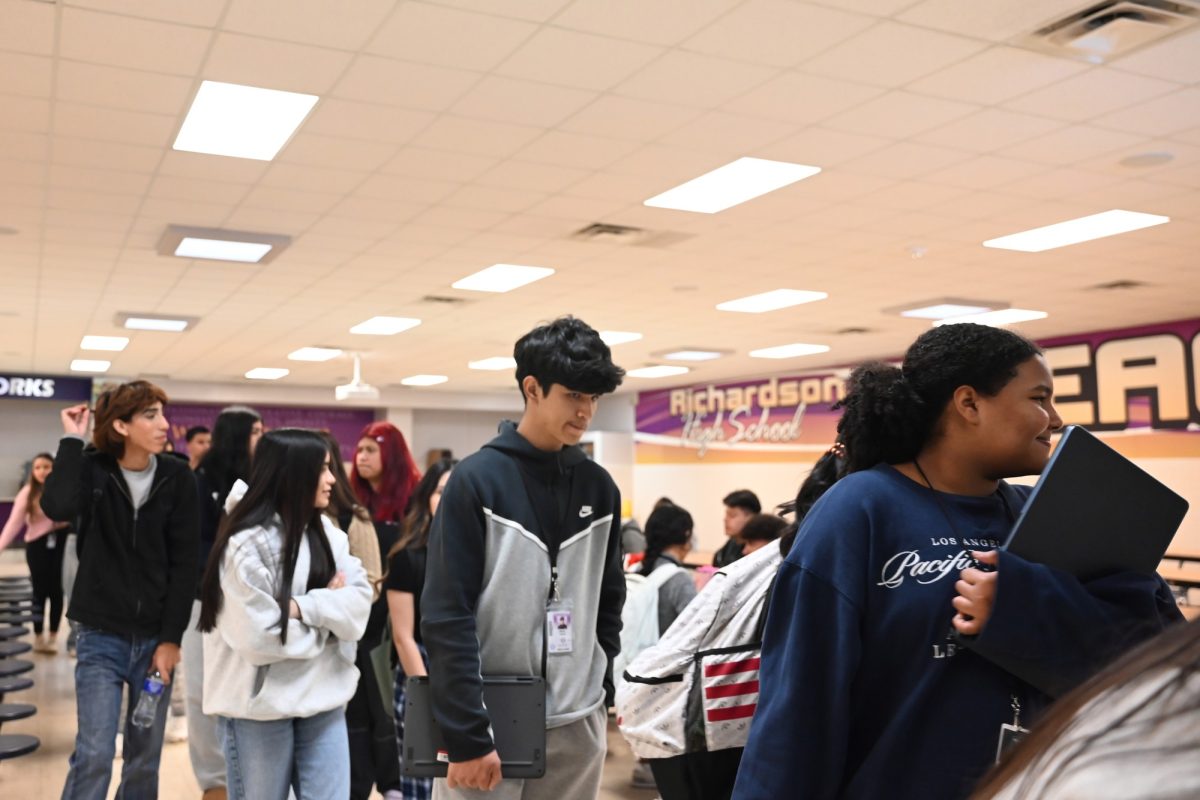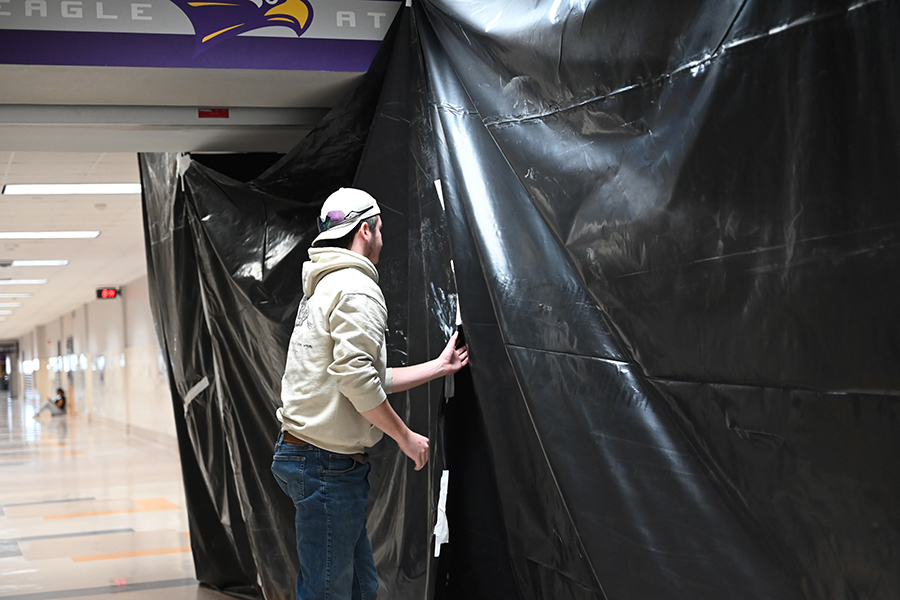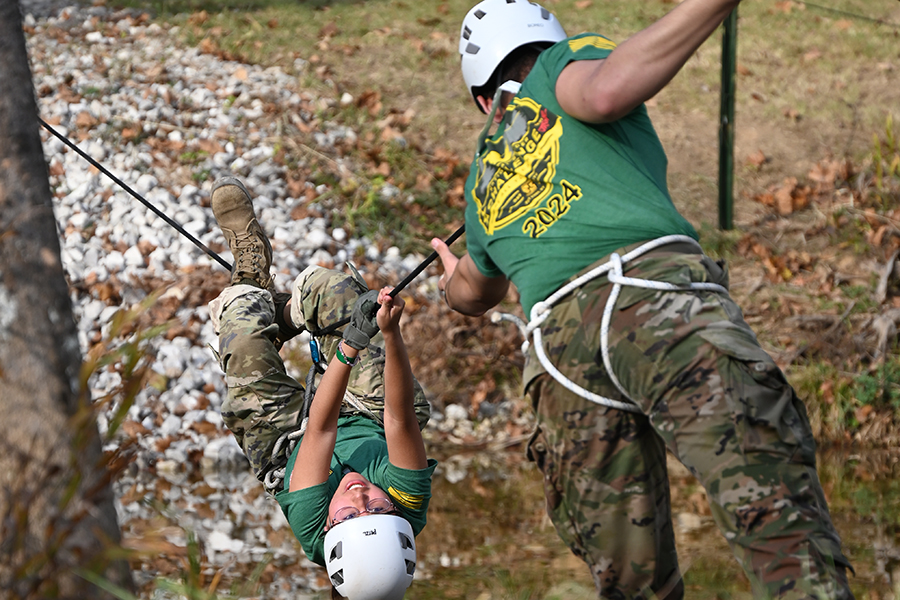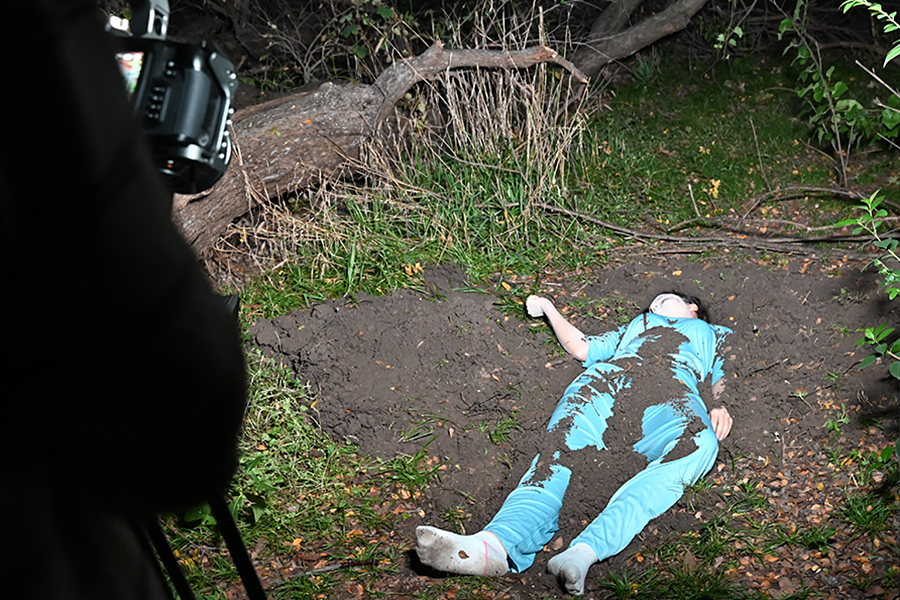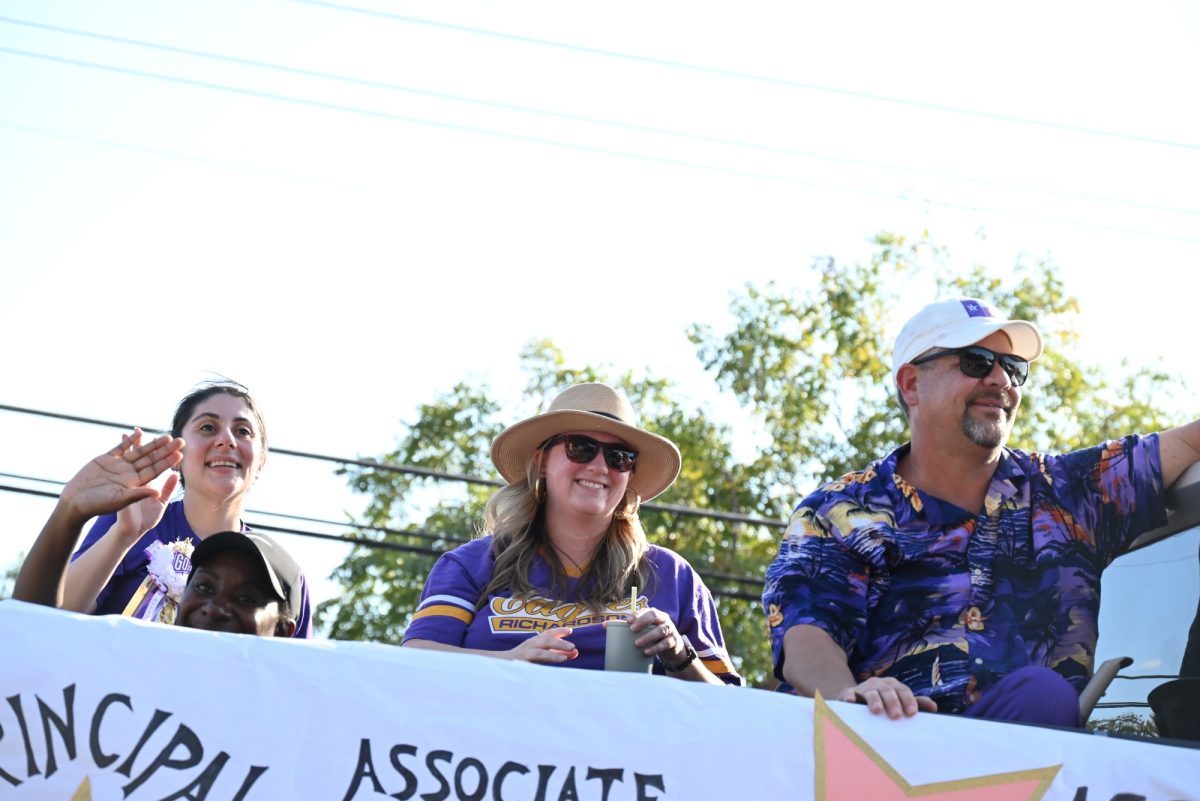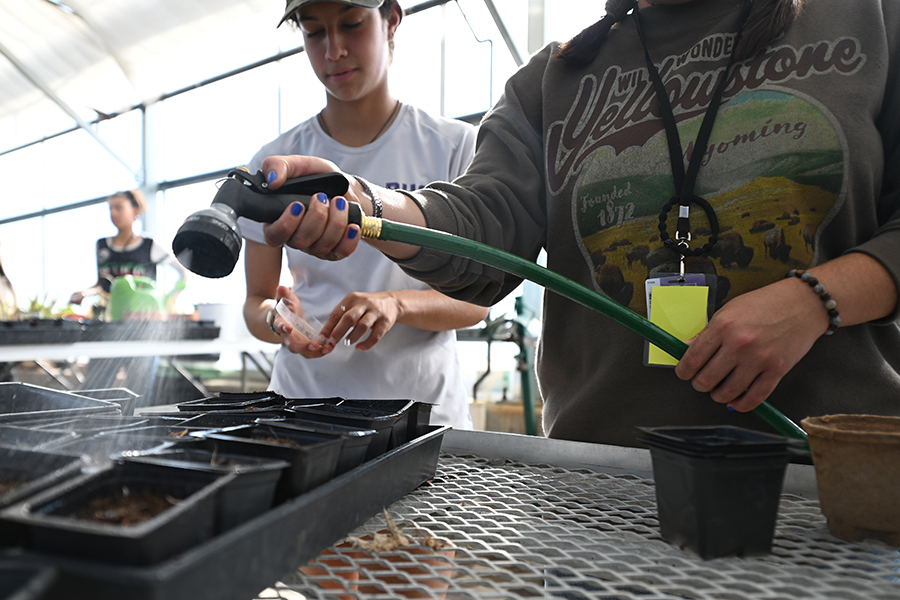As Fake ID by Big and Rich blared through the speakers, senior Desperado Taylor Baxter was tossed in the air by her partner, Noah Franklin. As the second song began to play, Baxter switched to dancing with Davis Michelle, her second partner.
This year Desperados started regularly switching partners because the team is smaller. Desperado members had to develop trust with multiple partners rather than just one.
“At the beginning it was a struggle with that whole trust thing, but now I think it’s actually made the team stronger because they’ve learned to adapt,” Desperado coach David Esparza said.
Now that members work with multiple partners, they are provided with more stunt time in class, which allows them to practice more with each partner.
“The longer you are partnered with someone, the more comfortable you get with them because they know what you’re afraid of and how you work best,” Baxter said.
Regardless of how long partners have been paired together or how much they have practiced, communication is necessary when trying to pull off stunts. Senior Desperado captain Chloe Parrish talks through stunts with her partner, Sean O’Ferrall, before doing them to ensure that they are both on the same page.
“The most important thing in a partnership is making sure you’re both on the same page,” Parrish said.
Desperados also need to have trust in themselves and believe in their capabilities while performing. Each member needs to be fully committed to the stunt before attempting it.
“I just have to keep in mind that I’ve done this before, I have the resources to do the stunt, and my partner will do everything in his power to make sure I don’t get hurt,” Parrish said.
Working with multiple partners changed the process of practicing and provided another obstacle for the team members to overcome.
“I think initially everyone was hesitant, but now it’s just become part of the culture,” Esparza said.


